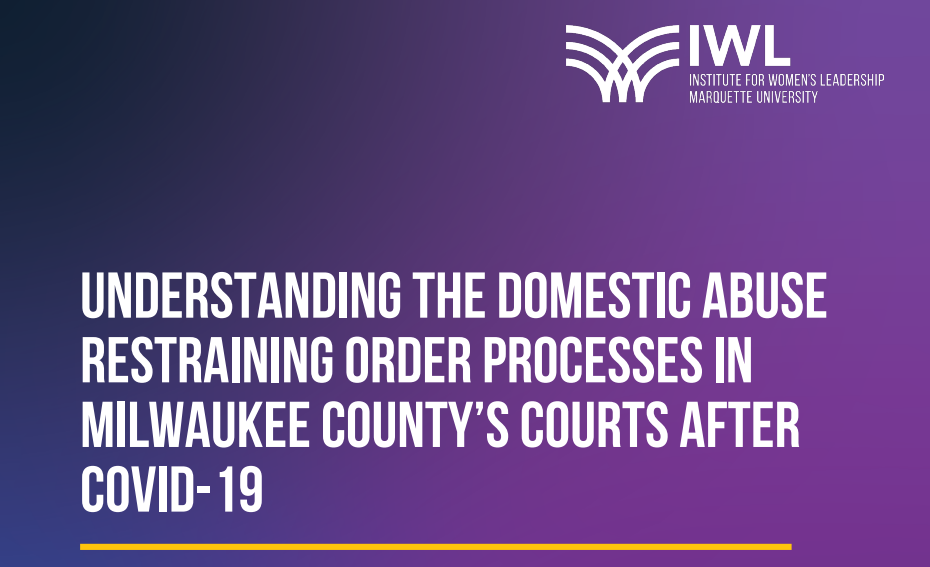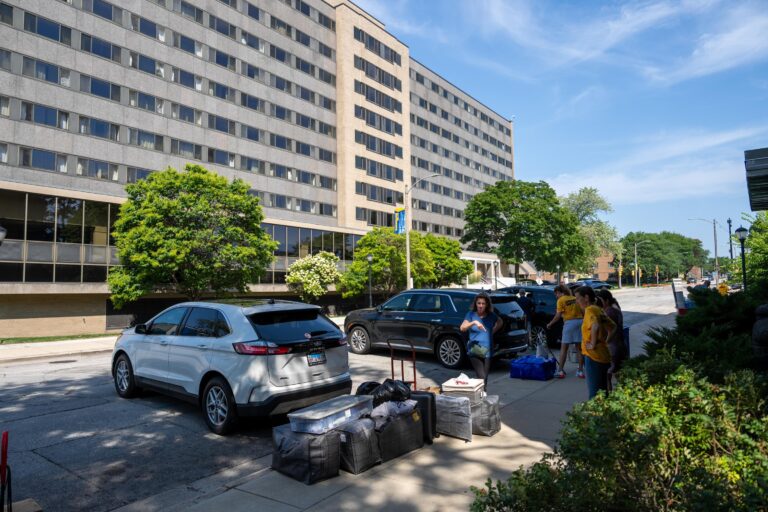
During the COVID-19 pandemic there was a reduced number of temporary restraining orders filed by domestic abuse survivors despite evidence that violence at home increased across the country. Abrupt changes to services and lack of resources were barriers to supporting survivors, according to a white paper published by the Institute for Women’s Leadership at Marquette University.
The paper, “Understanding the Domestic Abuse Restraining Order Processes in Milwaukee County’s Courts after COVID-19,” evaluates the temporary and long-term restraining order processes in Milwaukee County from the perspectives of service seekers and service providers.
IWL researchers worked with two populations for this study: those who sought support services at Sojourner Family Peace Center between June 20 and Oct. 1, 2020, and Milwaukee-area service providers from domestic violence intervention organizations and legal and court personnel.
“Reducing barriers to advocacy and the courts are imperative for domestic violence survivors,” said Dr. Heather Hlavka, professor of social and cultural sciences and Marquette’s lead author on the paper. “COVID-19 not only exacerbated many of the risk factors for partner violence, but statewide shutdowns forced these essential services to go remote on a dime. We wondered how survivors, service providers and court staff experienced major shifts to the process of obtaining restraining orders in Milwaukee County and what was learned along the way.”
Among the study’s findings:
- Support services are critical as language barriers and community isolation remained significant impediments, and communication and advocacy support was critical when filing restraining orders against abusive partners.
- Those who filed restraining orders were less likely to have legal representation as compared to pre-COVID years.
- There was a higher no-show rate at injunction hearings for both petitioners and respondents post-COVID.
Hlavka co-wrote the paper with Andrea Schneider, inaugural IWL director and current director of the Kukin Program for Conflict Resolution at Cardozo Law School at Yeshiva University; Dr. Sameena Mulla, former Marquette faculty member and current associate professor of women’s, gender, and sexuality studies at Emory University; and Dr. Erin Schubert, director of outcomes and evaluation at Sojourner Family Peace Center.
Additional editorial support for this paper was provided by Sarah Camp, IWL coordinator, and Dr. Karalee Surface, IWL leadership development coordinator.
This is the third and final white paper released by the IWL stemming from Marquette’s President’s Challenge for COVID-19 Response in 2020. IWL leaders were one of three recipients in funding for their project, “When Safer-at-Home is Not Actually Safe: Supporting Intimate Partner Violence Survivors during Quarantine.” The first paper, “A Guide to Better Understanding and Supporting Domestic Violence Survivors in Our Workplaces: When ‘Safer-At-Home’ is Not Actually Safe,” was released on Denim Day 2021 and looked at better understanding and supporting domestic violence survivors in our workplaces. In June 2023, the IWL released “Sojourner Clients and Access to Technology: A Geospatial Analysis,” which found expanding broadband coverage in communities most impacted by domestic violence to be necessary to provide adequate resources and support for victims of domestic violence.
The Institute for Women’s Leadership builds upon Marquette University’s historic role as the first coeducational Catholic university in the world beginning in 1909. The mission of the IWL is to support and conduct cutting-edge gender research and build transformational experiences and relationships that empower women and advance women’s leadership.


